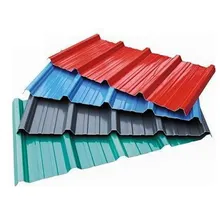Zinc Wastes: An Overview
Zinc wastes, a byproduct of various industrial processes, are prevalent in the manufacturing landscape. This category encompasses a range of materials, primarily consisting of residues and scraps that contain zinc. As a versatile element, zinc is crucial in numerous applications, from corrosion-resistant coatings to alloy production. The management and recycling of zinc wastes are essential for sustainable operations in industries such as metal fabrication and automotive manufacturing.
Types of Zinc Wastes
There are several forms of zinc wastes, each with unique characteristics. These include zinc dross, zinc ash, and zinc skimmings, which are residues from galvanizing processes or alloy manufacturing. Additionally, zinc-containing sludges and scraps from die-casting and sheet metal operations contribute to the category. Understanding the specific type of zinc waste is vital for proper recycling and treatment, ensuring that valuable zinc is recovered efficiently.
Applications and Recycling of Zinc Wastes
Zinc wastes hold significant value in recycling, where they undergo processes to reclaim zinc for reuse. The recycling of zinc involves treatment methods such as distillation, hydrometallurgy, and pyrometallurgy. Recycled zinc finds its way back into various industries, serving as an input for producing new zinc alloys, galvanizing metals, and manufacturing zinc-based compounds. This not only conserves natural resources but also reduces the environmental footprint of zinc production.
Features and Material Composition
The material composition of zinc wastes can vary, but they typically contain a high percentage of zinc, often combined with other metals such as iron, lead, and cadmium. The features of zinc wastes are determined by their origin and the zinc content. For instance, zinc dross usually has a higher purity level compared to zinc ash. The physical form of zinc wastes can range from solid chunks to fine powders, influencing the choice of recycling and treatment methods.
Advantages of Proper Zinc Waste Management
Effective management of zinc wastes offers several advantages. It enables the conservation of zinc as a resource and reduces the need for mining virgin zinc ore. Proper treatment of zinc wastes also minimizes environmental hazards associated with waste disposal. Industries that invest in zinc waste recycling can often benefit from cost savings by reducing raw material expenses and potentially generating revenue from the sale of reclaimed zinc.
Conclusion
In conclusion, zinc wastes are a significant category within the recycling industry, offering opportunities for resource conservation and environmental protection. The proper handling and treatment of these materials are crucial for industries looking to operate sustainably and responsibly. As a platform, Alibaba.com facilitates the connection between suppliers and buyers, aiming to streamline the procurement process for zinc wastes and support the recycling ecosystem.

































 浙公网安备 33010002000092号
浙公网安备 33010002000092号 浙B2-20120091-4
浙B2-20120091-4